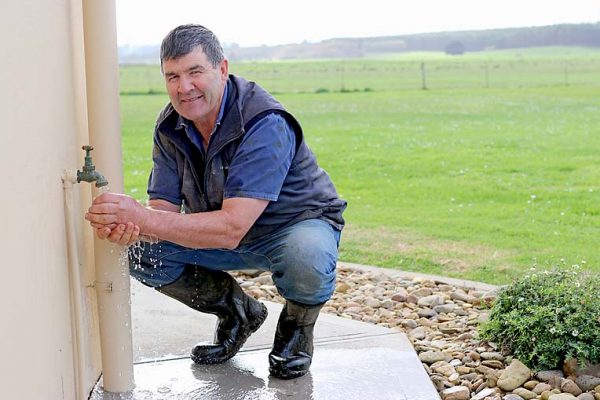

SOUTH East farmers are concerned the region’s “clean and green” image could be tarnished following the announcement of three new petroleum exploration licences for the Otway Basin.
With gas in high demand across Australia, the licence expansion from Naracoorte west to Robe and south to Port MacDonnell has effectively opened the entire Lower South East to bidding from gas companies.
South Australia Dairyfarmers Association president John Hunt said the state needed to be careful on how it “preserves” its image.
“We need to think about how we market ourselves as you do not see any bottles of milk being sold with a picture of a gas drill in the background,” he said.
“The expansion is not just going to have impact on the image of the dairy farming industry, but all parts of Australia.
“We need to think about how this will make us look.”
Mr Hunt said the latest development was nothing new for the South East with pre-existing gas wells in the Coonawarra and Penola district.
“I think it is a rewarding income stream for the state but we also need to consider what the drilling leaves behind,” he said.
“We have seen farmers being compensated quite sufficiently from operations.
“Although, there are many passionate people who share an opinion so I think the expansion may become quite controversial.”
Association spokesman Graeme Hamilton said potential production on the new zones could create farming disruption for landowners without them reaping benefits.
“Companies tend to come into properties with sizable studies, lay tapes for measurements and need access to cross and draw straight lines,” he said.
“This can be a problem for farmers as we have high-traffic areas and stock moving through all the time.
“We need to work with the companies if they want to come and explore our properties as we have fairly dynamic systems happening here.”
Mr Hamilton said farmers did not receive the same drilling benefits compared with other countries.
“Unfortunately for us we only get to control the top few metres of our soil whereas in the United States of America it goes all the way down,” he said.
“Unless we go and change some fairly embedded parts of our legislation, it is not technically offending our rights.
“It will come down to the drilling company and their relationship with the landowner.”
Mr Hamilton said exploration was less concerning than the potential of hydraulic fracture stimulation, a practice which has been banned in the South East for 10 years.
“The association takes into consideration the physical ability to be able to draw quality and quantity amounts of water at reasonable depths, to make our operations efficient,” he said.
“If the salinity was to increase, depth of water to get worse or the salt water interface to be affected along the coast then they could all become problems for us.
“Fracking could potentially affect these factors so we are lucky to have the fracking moratorium in place.”
Mr Hamilton said although people were entitled to their views, exploration had to happen in “somebody’s backyard.”
“We do not really want them riding into town like cowboys but if we do nothing we are not going to progress,” he said.
“They have needs, but we also have needs so we will make it work smoothly if that is what we have to do.”
While acknowledging petroleum exploration could lead to job creation and provide an economic stimulus, Beachport farmer Mark Weal said investment would be better spent on renewable energy.
“There are good things and bad things about fossil fuels,” Mr Wheal said.
“I value water too highly and petroleum exploration poses too great a risk.
“I don’t want to see our farming operations compromised as this area produces food for the world.
“I think some people underestimate how much food product comes out of the Limestone Coast.
“On a world-scale, fossil fuels are a short-term view”.
“We should be investing in energy sources other than fossil fuels.”







